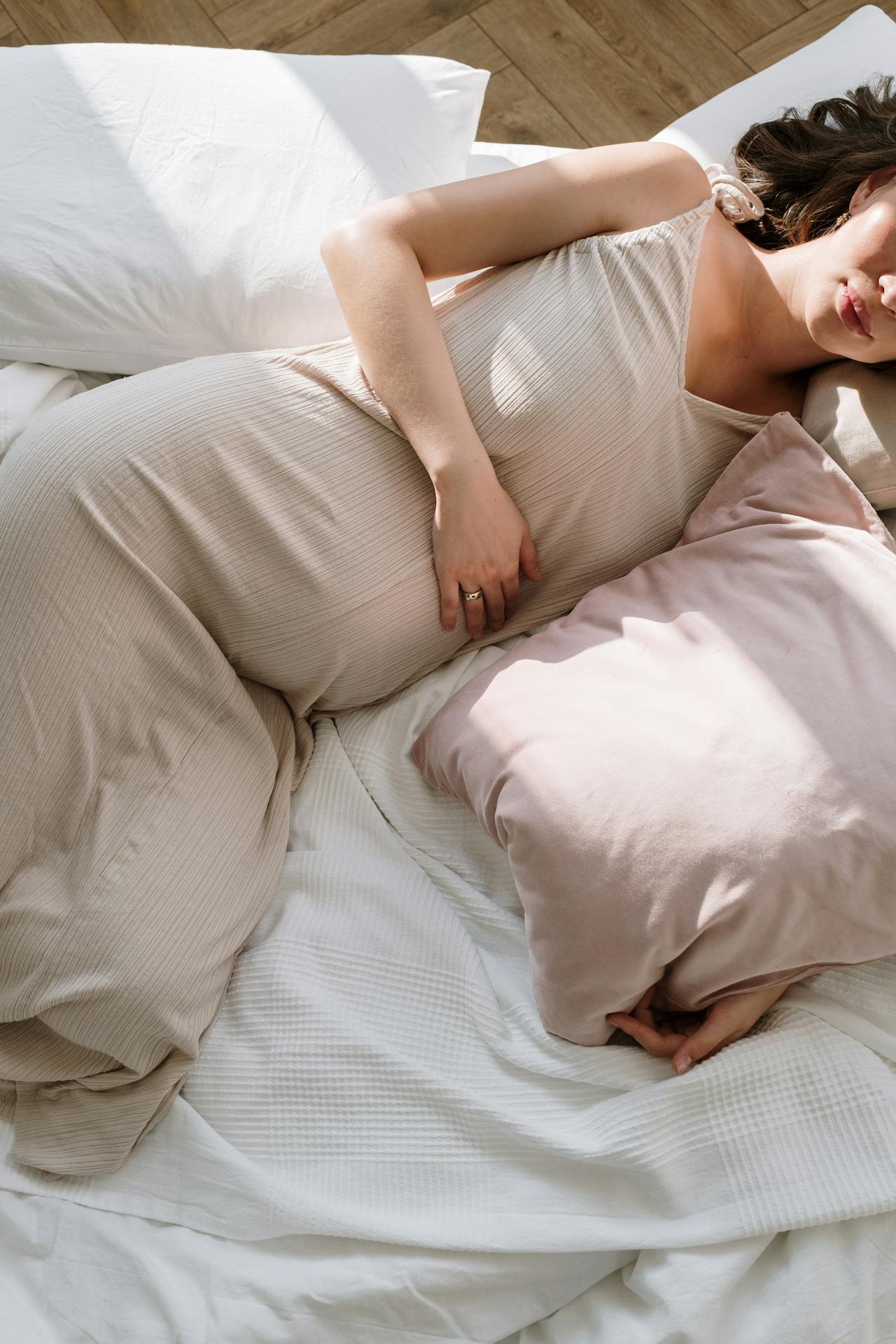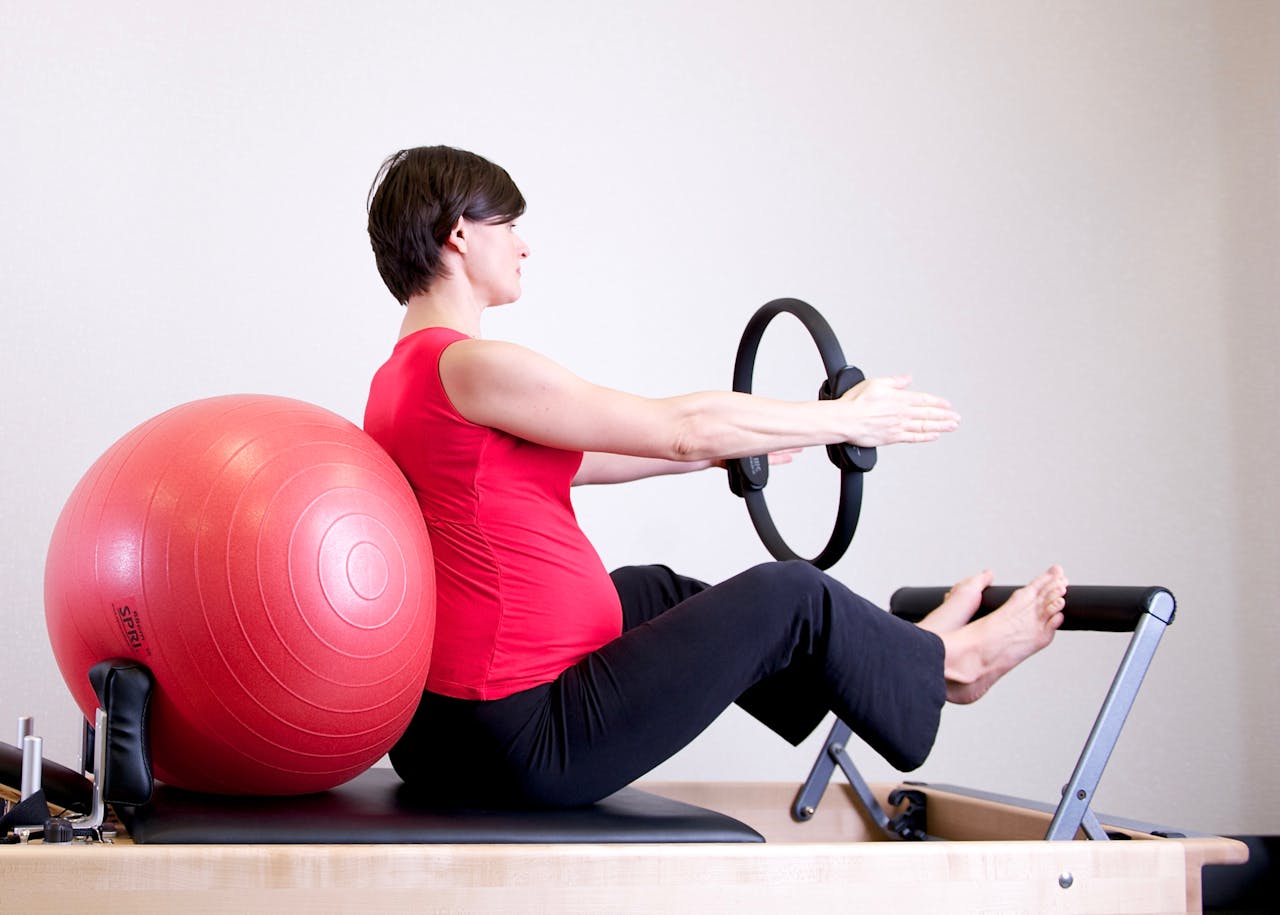Pregnancy knee pain is common among most pregnant women during this adorable journey.
Pregnancy brings about numerous changes throughout the body to accommodate the presence of the baby.
Women complain of pain and aches during pregnancy.
However, pregnancy knee pain is one of the most annoying problems because it affects mobility.
In this article, we will provide a holistic view, encompassing causes, treatments, and prevention.
What causes pregnancy knee pain?
Weight gain
It is normal to experience gradual weight gain during pregnancy as the baby grows. However, the added kilograms will increase the pressure on large joints such as the knees.
This additional stress can lead to pain during movement, walking, or prolonged standing.
Hormonal change
Relaxin is one of the hormones that are released during pregnancy. It loosens the ligaments, making joints less stable and painful.
Posture adjustment
When the baby grows, changes in the center of gravity will occur.
As compensation, the posture will be adjusted, leading to strain on joints, which causes pain and fatigue.
Fluid retention
Most pregnant women suffer from fluid retention, especially during the third trimester, which leads to swelling.
This water gain contributes to pain and discomfort because of high pressure on the knee.

Effects of pregnancy on knee pain
Unfortunately, pregnancy knee pain can negatively affect daily activities and decrease quality of life.
Reduced mobility
Because bending or straightening the knee becomes challenging, simple physical activities such as walking, moving, and getting out of bed will be difficult.
Sleep disorder
How could you fall into a deep sleep while having annoying pain?
Pregnancy knee pain makes sleeping kind of a nightmare because the pain increases when lying down.
Lack of sleep contributes to stress, anxiety, and high pressure in some cases.

Treatment strategy for pregnancy knee pain
Low-impact exercise
Making workouts a priority is very helpful in managing pregnancy knee pain as it strengthens muscles around the knee.
Some pregnant women do not move properly during pregnancy because of the fatigue and discomfort they face.
When the joints are not used, they lose strength.
Therefore, it is crucial to increase physical activity and do regular low-impact exercises like walking, swimming, and gentle stretching.
Have a rest
Resting is a simple way to relieve pregnancy knee pain. Finding the right position that takes the load off the knees will make a difference.
Tip: If you are lying down, put a pillow between your legs to give additional support to your knees.
Elevating feed
Bending knees for a long time may block the blood flow.
Therefore, when you sit down, try to elevate your legs. That will increase blood circulation and reduce fluid retention.
In addition, consider using a cold pad to relieve inflammation.
Footwear selection
Wearing the proper footwear plays a big role in controlling pregnancy knee pain.
Avoid wearing high heels and choose comfortable, supportive shoes with good cushioning.
You might need to size up your shoes during pregnancy due to swelling and spreading.
Massaging
Massage therapy helps you relax and increase blood circulation.
It also improves the ability to move and walk.
Consulting a certified massage therapist would be beneficial.
Wearing support
A knee brace provides extra support to the knee and joint to adapt to weight gain.
Maternity belts are also helpful to take pressure off the knee and lower back.
Pain killer medications
When all other strategies fail to relieve pregnancy knee pain, OTC analgesics such as acetaminophen could be considered with caution.
Consult your doctor to prescribe pain relief that is safe for pregnant women, but do not exceed the advised dose.
What topical treatments are used to relieve pregnancy knee pain?
Topical treatments are good alternatives to medications.
They are applied to the skin.
However, not all topical treatments are safe, so you should consult your healthcare provider.
Cold pack
Cold reduces inflammation and swelling.
Apply an ice pack for 15-20 minutes several times a day.
Hot pack
Heat increases blood circulation and relaxes muscles.
Apply a warm pack for 15-20 minutes.
Ideal for muscle cramps.
Topical magnesium
Magnesium is known for its effect on relaxing muscles.
Topical magnesium is absorbed through the skin.
Essential oils
Certain safe essential oils that can be used during pregnancy
- Lavender oil
- Eucalyptus
- Peppermint
How to use?
Mix a few drops with coconut or almond oil
Gently massage the knees
Warning Signs
Although pregnancy knee pain is common and controllable, it is crucial to be aware of serious signs and symptoms that require urgent medical intervention.
- Severe and unbearable pain
- Signs of inflammation, like redness and fever
- Difficulty in moving or walking
These symptoms should not be ignored as they may signal serious conditions like deep vein thrombosis (DVT).

Prevention tips
An ounce of prevention is worth a pound of cure.
If you are planning to be pregnant, follow these tips to avoid pregnancy knee pain.
Strengthen muscles
When muscles are strong, especially in the lower body, they help support the knees.
Do safe pre-pregnancy exercises.
Maintain an Ideal weight
Although weight gain is normal and necessary during pregnancy, keeping it within the normal range before and after pregnancy reduces the pressure on the knees.
- Follow up with a nutritionist to monitor your weight gain.
- Stay healthy and focus on rich-nutrient food.
- Move and increase your mobility.
Stretch regularly,
Gentle stretching increases joint flexibility, making it less prone to injury or pain.
Yoga is a good choice to stretch safely as it works on balance and reduces stress.
Stay healthy and hydrated
Dehydration affects joints and causes tightness, discomfort, and pain, so it is important to stay hydrated.
- Drink plenty of water every day to keep joints lubricated.
- Limit intake of high-sugar processed food
- Increase intake of natural antioxidants and anti-inflammatory foods like berries, fish, and nuts rich in omega-3
Sleep position
The way you sleep influences pressure distribution.
Well, sleeping position rests the knee and decreases pain.
- Avoid sleeping on your back because it impacts blood circulation.
- Sleep on your left side and place a pillow between your legs for additional support.
- Using a pregnancy pillow might be helpful.
Early physical therapy
Take prevention steps before the pain starts.
- A physical therapist evaluates your movement, strengths, and posture.
- They provide you with the exercises and stretches that fit your condition
- Early intervention will stop pregnancy knee pain from getting worse.
Avoid long sitting or standing
Change your position every while and do not stay sitting or standing for a long time.
It is good to elevate your legs if possible.
In Conclusion, knee pain may be common during pregnancy, but it can be managed.
Following prevention steps like exercising, resting, wearing proper shoes, and controlling weight gain will make a difference and make pregnancy tips comfortable.
Read more about:


You must be logged in to post a comment.